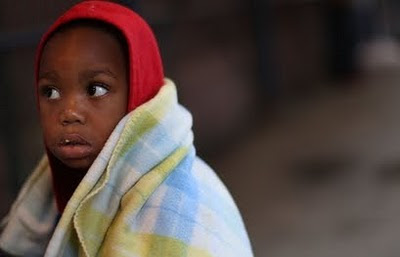I attended the “Homelessness in Focus” program on Wednesday, and though it was an eye-opening program, it was very difficult for me at first to figure out how it was related to the arts. However, there came a point when Ms. Henry, one of the homeless speakers, spoke about the suffering of the homeless children (she used to be a grade school teacher before the shelter she now lives in made her quit her job). She said that the children have to get up very early in the morning and are therefore very tired when they come to school, making it difficult for them to learn. They also get very limited food rations, which further handicaps them. When they come home to the shelter, they need to wait for one of their parents to come and escort them into the building. If their parents are not there, they make the children wait outside until their parent picks them up.
 This got me thinking: These children will be deprived of a proper education. If that is the case, who knows how many potential artists, musicians, actors, and curators could have been among these unfortunate children, but in the end cannot become them because of the corrupt shelter system and their lack of education? And this doesn’t just have to apply to the arts; these children could have also become great doctors, attorneys, businessmen, politicians, and whatever else, but now cannot because of their lack of a home and education. Attainment of these professions would also likely afford them financial independence in the future.
This got me thinking: These children will be deprived of a proper education. If that is the case, who knows how many potential artists, musicians, actors, and curators could have been among these unfortunate children, but in the end cannot become them because of the corrupt shelter system and their lack of education? And this doesn’t just have to apply to the arts; these children could have also become great doctors, attorneys, businessmen, politicians, and whatever else, but now cannot because of their lack of a home and education. Attainment of these professions would also likely afford them financial independence in the future.
Occupy Wall Street is a very peculiar movement. They are an organization which essentially complains that 1% of the population controls the majority of the wealth in this country, whereas the 99% do not. I do sympathize with the essence of this complaint. However, it is important to look at the political views and socioeconomic statuses of people who are protesting. Based on this article I found, it seems that a surprisingly significant number of these protestors are left-wing radicals who believe in the redistribution of wealth and are opposed to free-market capitalism, meaning they are essentially socialists. This article also says that a majority of the protestors are employed.

Bearing this in mind, should one choose to agree and protest with them, it is very important to remember that we, the students in Macaulay Honors College at Queens, are very lucky that we are not homeless, we have an excellent and free education, and we are not starving and thinking about how we are going to eat our next meal. We all have the potential to go into whatever profession we want, whether it be the arts, science, law, or business. We need to remember that it is not really us, but other people who have it much worse than us, that need the government to reform certain aspects of our society, such as the shelter system and the suffering of its children. Rather than lobby the government to pay for wealthier middle class people who have houses and good jobs, let’s instead lobby for those less fortunate children to get real housing and a better life so they can get a good education and become the world’s greatest artists. It is very appropriate that Thanksgiving, the holiday of giving thanks, is approaching. It is important to be thankful for the good blessings that we have and use our resources to ameliorate the plights of others who are much less fortunate than us. Once these people are taken care of, then we can focus more on the injustices that affect us.


The issue of education and health care are perhaps the two most fundamental aspects of the inequality between the 1% and the 99% that needs to be addressed. Not that the 99% need the health care and education that is being held by the 1%, but a more equitable distribution of resources, wealth and opportunities could help provide a better level of health and education for the lower end of the 99%. (And some people who are simply living beyond their means may also have to sacrifice for the most needy.) I read an article recently that stated that IMPROVEMENTS in health care have actually exacerbated the current situation. In the Great Depression, the lack of adequate health care for the poorest Americans actually helped bring the country out of the Depression!